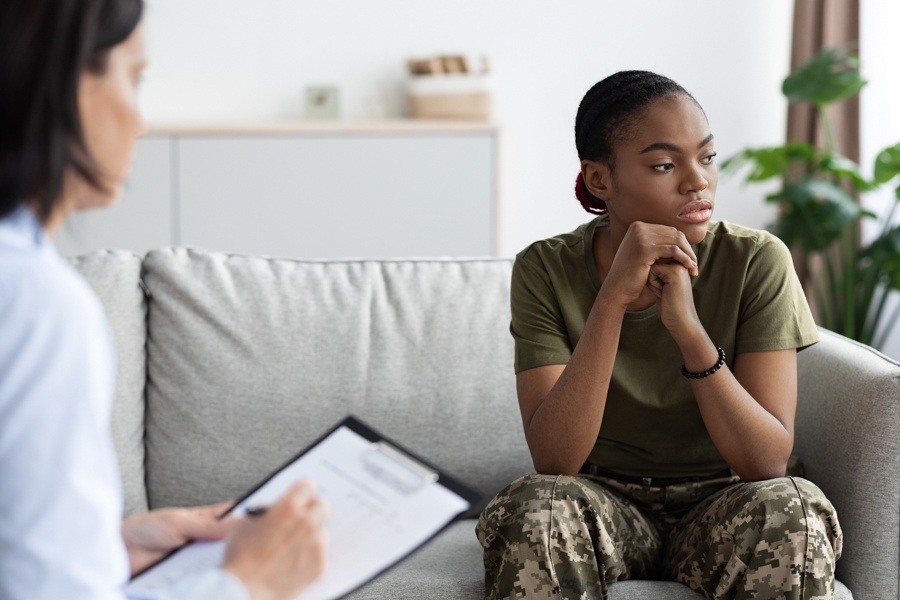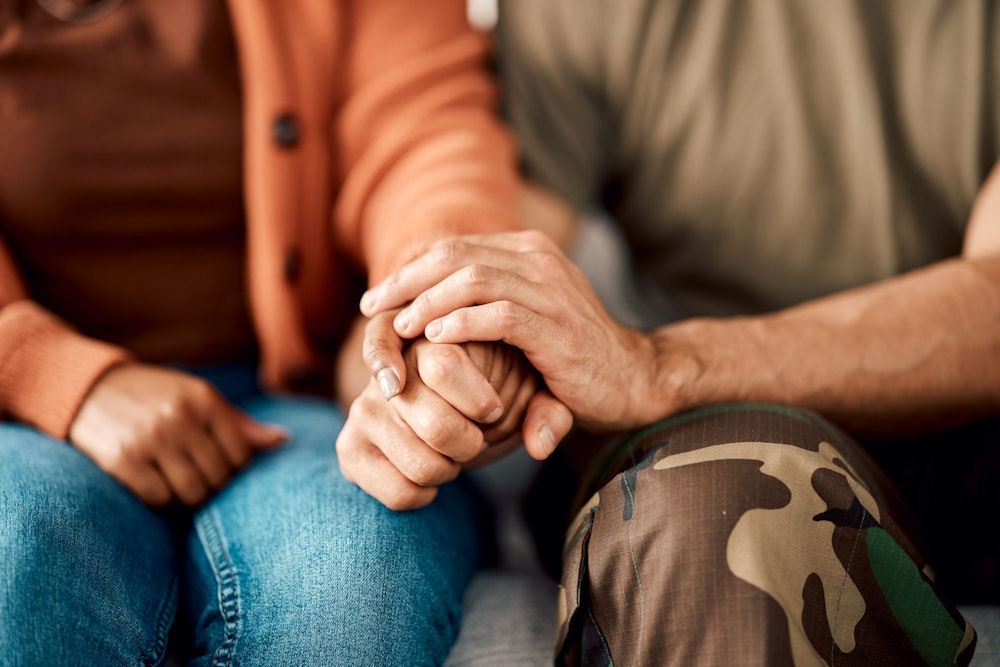Most people know Veteran’s Day is a national holiday because banks and government offices are closed. But do you know how Veteran’s Day originated?
Originally Armistice Day, Veteran’s Day began on November 11, 1919, the first anniversary of World War 1. In 1926, Congress passed a resolution for an annual observance. On November 11, 1938, it became a national holiday.
In 1954, President Eisenhower changed the name to Vereran’s Day to honor all American veterans, living and dead. Serving in the military, especially during war, is the ultimate sacrifice. A soldier sacrifices time with family, leave their home, and risk their life.
War takes a toll physically and mentally on soldiers. Some of them return home scarred and in need of trauma therapy in Los Angeles, California, and injured. Some see fellow soldiers die and come close to death themselves. This can cause depression and PTSD in veterans.
What Are Symptoms of Depression and PTSD in Veterans?
To understand why depression and PTSD in veterans go hand-in-hand, you must first understand what each disorder is and the symptoms of each.
Veteran’s and Depression
Depression is a mood disorder that affects thoughts, behavior, and feelings. In chronic cases, it is often called major depressive disorder. Genetics, hormone imbalances, and environmental factors can cause depression.
For example, depression runs in your family. This automatically increases your risk of developing the disorder. If you struggle with PTSD or other mental health issues, your chances significantly increase for developing depression symptoms.
While the type of depression influences the symptoms you may have, the most common symptoms of depression in veterans include:
- Intense and persistent sadness
- Emotionally numb
- Body aches
- Negative thoughts
- Change in appetite
- Sleep changes
- Struggling with personal hygiene
- Misusing drugs or alcohol
- Suicidal thoughts and attempts
Many veterans struggle with thoughts of suicide. Veterans have an increased risk of suicide, especially when they have depression and PTSD. This makes treatment for depression in veterans vital to saving their lives.
PTSD in Veterans
PTSD is a mental health disorder that can occur after a person goes through a traumatic experience. Veterans develop PTSD at a higher rate than the rest of the general population due to combat trauma. From combat to natural disasters, these often leave veterans struggling with emotional pain.
The symptoms of PTSD include:
- Flashbacks
- Fear
- Avoiding reminders of the event
- Constant and severe anxiety
- Changes in behavior and mood
- Recurring negative thoughts
- Trouble sleeping
- Developing an addiction
Managing the symptoms of PTSD on your own is extremely challenging. Struggling with symptoms of depression on top of PTSD symptoms can affect your daily life and responsibilities. This makes recognizing the symptoms of these disorders and seeking treatment critical to saving the lives of veterans.
What is the Connection Between Depression and PTSD in Veterans?
Depression and PTSD in veterans can significantly impact their daily lives. A common symptom of PTSD includes avoiding certain situations and places. This can put a strain on relationships, careers, and social activities. This can make veterans feel alone and isolated, which contributes to depression symptoms.
The social aspect of PTSD isn’t the only part impacting veterans. PTSD is a mental illness. It changes the way the brain works, which causes a chemical imbalance. In turn, this imbalance can lead to depression.
Untreated depression and PTSD in veterans often lead to self-medicating with drugs or alcohol to numb the pain. However, misusing drugs and alcohol can lead to addiction, worsen symptoms, and increase suicidal thoughts in Los Angeles, California.
According to the National Alliance on Mental Illness (NAMI), up to 1 in 5 veterans struggle with PTSD. The rate of PTSD in civilians is 1 in 25. While other research found the following:
- Depression affects 20% of veterans
- 11% of veterans have suicidal ideations or attempts
- 8% of veterans struggling with alcohol abuse have suicidal ideations or attempts
- Of veterans who abuse drugs, 18% of suicidal ideation, and 30% have suicidal attempts
What Are Some Organizations That Raise Awareness for PTSD in Soldiers Returning From Battle?
Several organizations work to raise awareness of and provide support for soldiers and veterans struggling with PTSD. Some of these organizations include:
- Wounded Warrior Project (WWP) – Wounded Warrior Project is a well-known nonprofit organization. It provides various programs and services to support veterans and service members who have been injured or are dealing with mental health challenges, including PTSD.
- National Center for PTSD – This center is part of the U.S. Department of Veterans Affairs. It focuses on research, education, and the dissemination of information related to PTSD. They aim to improve the understanding and treatment of PTSD.
- Veterans of Foreign Wars (VFW) – The VFW offers support and resources for veterans, including those struggling with PTSD. They advocate for veterans’ mental health and well-being.
- Operation: I.V. (Integration Victory) – This nonprofit organization focuses on assisting veterans and their families in their reintegration into civilian life and addressing issues like PTSD through various programs and resources.
- Hope For The Warriors – Hope For The Warriors provides support, counseling, and other resources to service members, veterans, and their families affected by PTSD and other mental health challenges.
These organizations work to raise awareness about the challenges of depression and PTSD in veterans. They also provide vital support and resources for those affected.
Additionally, government agencies and military branches have programs and initiatives in place to address PTSD and provide assistance to service members and veterans dealing with this condition.
What are Some Tips for Veterans to Maintain a Strong Mind?
When it comes to PTSD and depression in veterans, maintaining a strong mind is essential. Transitioning to civilian life and navigating the mental challenges of combat experiences can be difficult for some veterans.
The following tips can minimize the negative impact of combat on your mental health.
Don’t hesitate to contact friends, family, or support organizations when you feel overwhelmed or need someone to talk to. Sharing your thoughts and experiences can be therapeutic.
It’s crucial to seek professional help if you’re struggling with mental health issues such as PTSD, depression, or anxiety. Many veterans’ organizations and the VA offer mental health services.
Creating a daily routine can provide structure and stability, which can be especially beneficial during the transition to civilian life. Consistency can help reduce stress and anxiety.
Regular exercise and a healthy diet can have a positive impact on
mental health. Physical activity can reduce stress, improve mood, and increase overall well-being.
Mindfulness techniques, such as meditation and deep breathing exercises, can help reduce stress and increase emotional resilience.
Set achievable goals for your personal and professional life. Having goals to work towards can provide a sense of purpose and motivation.
Maintain social connections with fellow veterans and try to connect with civilians who understand your experiences. This can help combat feelings of isolation.
Isolation can worsen mental health issues. Try to engage in social activities, clubs, or hobbies that interest you.
Learn stress management techniques such as time management, problem-solving, and cognitive-behavioral therapy strategies to cope with life’s challenges.
Pursue educational and employment opportunities that align with your interests and skills. Having a sense of purpose and financial stability can boost mental well-being.
Giving back to your community or helping other veterans can be a fulfilling way to maintain a strong mind and a sense of purpose.
Be mindful of alcohol and substance use, as they can exacerbate mental health issues. Seek professional help if you are struggling with addiction.
Identify healthy coping strategies for managing difficult emotions and situations. This may include journaling, creative outlets, or engaging in hobbies.
Make self-care a priority by taking time to relax, rest, and engage in activities that bring you joy and fulfillment.
What are Treatment Programs for Veterans Struggling with Depression and PTSD?
There are several programs for treating depression and PTSD in veterans. Depending on your specific needs, you may start with a medical detox program to help you rid your body of drugs or alcohol. Once detox is complete, or if you don’t need detox, you will enter an inpatient or outpatient program in Los Angeles, California.
Common treatment options in both inpatient or outpatient treatment for PTSD and depression in veterans include:
- Individual psychotherapy
- Group therapy
- Medications
- Behavioral therapies
- Eye Movement Desensitization and Reprocessing (EMDR)
- Mindfulness and relaxation techniques
- Peer support programs
Some veterans find having a service animal specially trained for veterans and depression extremely helpful in making them feel safe, comforted, and supported. Struggling alone with depression or PTSD is extremely risky because over 16 veterans commit suicide every day.
Westwind Recovery® Assists Veterans with PTSD and Depression
If you or someone you love is a veteran struggling with PTSD or depression, we can help. At Westwind Recovery® in Los Angeles, California, our treatment programs can help you successfully manage stress, minimize flashbacks, and maintain sobriety. Contact us today to learn more.

Dr. Deena is the Chief Clinical Officer of Westwind Recovery®, an award-winning outpatient treatment center in Los Angeles where she oversees the clinical and administrative program and treatment methods. Dr. Deena is a doctor of psychology and licensed clinical social worker since 1993. LCSW #20628. Originally from the East Coast, Dr. Deena has worked running treatment centers, worked as a therapist in psychiatric hospitals as well as school settings and currently has a thriving private practice in the LA area. Dr. Deena has appeared regularly on the Dr. Phil Show as an expert since 2003. She has also been featured on many other TV shows, podcasts and has contributed to written publications as well as podcasts.





